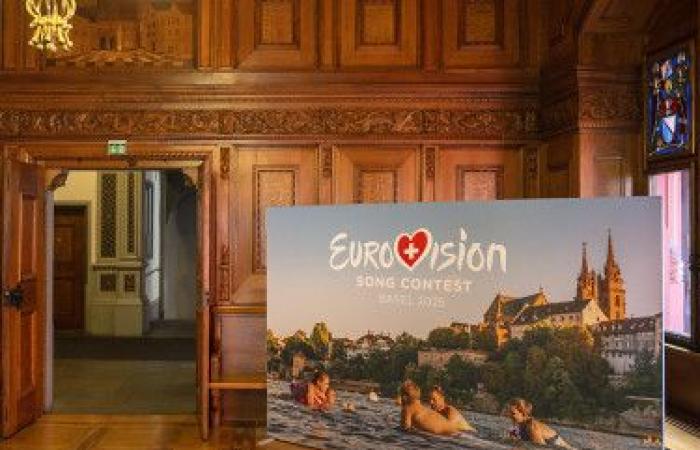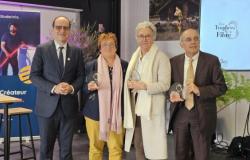The people of Basel clearly approved, at 66.57%, the credit granted by the canton to the SSR for the organization of the 69th Eurovision Song Contest (ESC). The participation rate in the ballot reached 57.15%.
An ultra-evangelical microparty not represented in the Grand Council, the UDF had seized the referendum against the credit adopted almost unanimously by the cantonal parliament. He criticized the ESC for having become a propaganda platform for the rights of LGBT and non-binary people, for tolerating Satanism on stage and for fueling anti-Semitism.
Attractive economic benefits
The voters, however, followed the enthusiasm of the authorities. The investment will be profitable, according to them, thanks to the enormous added value that the Eurovision Song Contest will generate. The ESC, which will take place on May 13, 15 and 17, is a chance to reach millions of people and present the city as a modern place for organizing major events.
The gross amount invested by the canton amounts to 37.5 million francs, but the authorities have deducted the expected revenue of 2.5 million from entries to the Parc St-Jacques stadium for the giant “public viewing”.
The credit must cover costs for infrastructure, security, transport, accommodation, welcome actions, for framework events and for relief. The largest musical competition in the world will take place at the St-Jacques hall, which has 12,000 seats.
Foreigners' vote: no German-speaking first
In the other key election in Basel-Stadt, voters refused, by 55.58%, to grant the right to vote to foreigners holding a C permit, domiciled in the canton for at least five years. This modification of the constitution proposed by the authorities was supported by the left and the Green Liberals, but rejected by the bourgeois parties.
Basel-City therefore does not become the first German-speaking canton to grant the right to vote to foreign residents. In 2010, the people of Basel had already refused to grant this right.
Only Neuchâtel and Jura have granted this right at the municipal and cantonal levels. In the cantons of Vaud, Geneva and Fribourg, this right is granted at the municipal level only. In Graubünden and Appenzell Ausserrhoden, the municipalities have the possibility of granting it.






